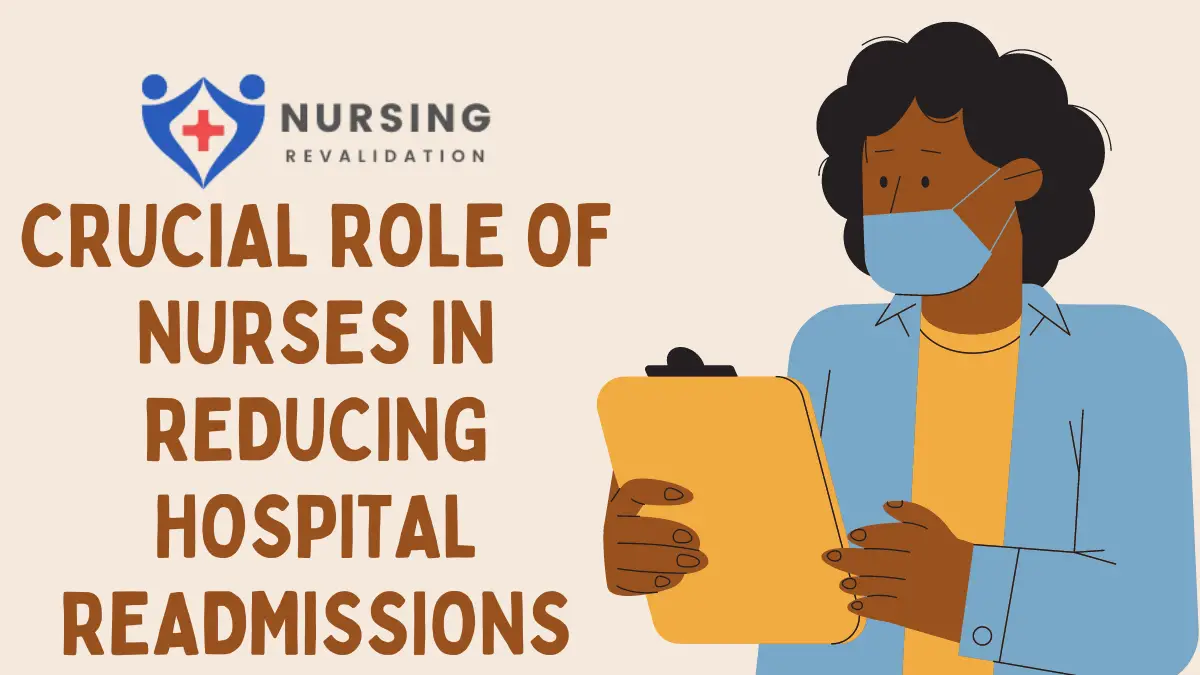Hospital readmissions pose a significant challenge for healthcare systems worldwide. Not only do they strain resources, but they also impact patient outcomes and satisfaction. However, nurses play a pivotal role in mitigating this issue through their expertise in patient care and coordination. In this comprehensive guide, we delve into the multifaceted contributions of nurses in reducing hospital readmissions, highlighting their crucial role in improving healthcare delivery.
Understanding the Challenge
Hospital readmissions refer to instances where patients return to the hospital shortly after discharge, often due to complications or inadequate post-discharge care. These readmissions not only impose a financial burden on healthcare systems but also indicate gaps in patient care and management.
Why Nurses Are Key Players in Reducing Hospital Readmissions
Nurses are the linchpin of patient care, possessing the skills and knowledge necessary to address various factors contributing to readmissions. Here’s how they make a difference:
- Comprehensive Patient Assessment and Monitoring
- Nurses conduct thorough assessments of patients’ health status, identifying potential risks for readmission.
- Through continuous monitoring, they track patients’ progress post-discharge, promptly addressing any issues that may arise.
- Patient Education and Empowerment
- Nurses educate patients and their families about post-discharge instructions, medication management, and lifestyle modifications.
- By empowering patients with the knowledge to manage their health effectively, nurses reduce the likelihood of readmissions.
- Care Coordination and Collaboration
- Nurses serve as the central point of contact for patients, coordinating care across various healthcare settings and disciplines.
- Through effective collaboration with physicians, pharmacists, and other healthcare professionals, nurses ensure continuity of care and seamless transitions post-discharge.
- Early Intervention and Follow-up
- Nurses recognize warning signs of complications early on, enabling timely intervention to prevent readmissions.
- They conduct follow-up assessments and communicate with patients post-discharge, addressing concerns and optimizing recovery.
The Data: Nurses Making a Difference
Let’s take a closer look at the data showcasing the impact of nursing interventions on reducing hospital readmissions:
| Study | Findings |
|---|---|
| Smith et al. (2020) | Nurse-led discharge planning resulted in a 20% reduction in 30-day readmission rates among cardiac patients. |
| Johnson et al. (2019) | Implementation of a nurse-led transitional care program led to a 15% decrease in hospital readmissions within six months post-discharge. |
| Brown et al. (2021) | Hospitals with higher nurse-to-patient ratios demonstrated lower rates of readmissions across various medical conditions. |
Challenges and Solutions
Despite their critical role, nurses encounter various challenges that can impede their efforts to reduce hospital readmissions. These include:
- Heavy workloads and time constraints
- Limited resources and support for transitional care initiatives
- Fragmented healthcare systems and communication barriers
To address these challenges, healthcare organizations must invest in strategies such as:
- Providing adequate staffing and resources to support nursing interventions
- Implementing technology-enabled solutions for care coordination and communication
- Promoting interdisciplinary collaboration and teamwork
Conclusion
Nurses are indispensable in the quest to reduce hospital readmissions and improve healthcare quality. Through their expertise, compassion, and dedication, they play a vital role in ensuring seamless transitions of care and promoting patient well-being. By recognizing and supporting the contributions of nurses, healthcare organizations can effectively address the challenge of hospital readmissions and enhance the overall patient experience.


